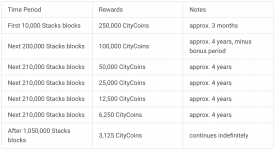I could just have an incorrect understanding of inflation, but I think the price of bitcoin going up would be deflation, i.e. value of a unit of currency increasing, no?[/BITCOIN]
Yes if bitcoin increases in value then that is the opposite of inflation. Well sort of... inflation is the decrease in value of a currency but I don't think you say "bitcoin went down by 1 percent today so it is inflating" - I think that if you say that a currency is inflating or deflating you are saying more than just that the latest movement was down/up, I think it implies a general trend in that direction and probably requires some other indicators too.
Unless there is a distinction between a currency and a speculative asset/security in this regard, with inflation/deflation pertaining to the former and depreciation/appreciation pertaining to the later.
I don't know anything about this at all. My guess is that there is no real difference between a currency and an asset here except how you're thinking about it at the time.
And yeah, the max supply of BTC is ~21,000,000 because the rate at which new BTC is minted tapers off until then. But that doesn't mean there is 0% chance that the supply cap changes. If the majority of nodes in the bitcoin network, i.e. computers running bitcoin's code, switch to a different code with a different supply cap, then the economics of Bitcoin changes accordingly.
But suppose the cap stayed the same but some other thing happened which somehow tended to decrease the value of Bitcoin over time. I don't what such a thing could be, but it's not inconceivable and, if it did happen, then bitcoin would inflate right?

